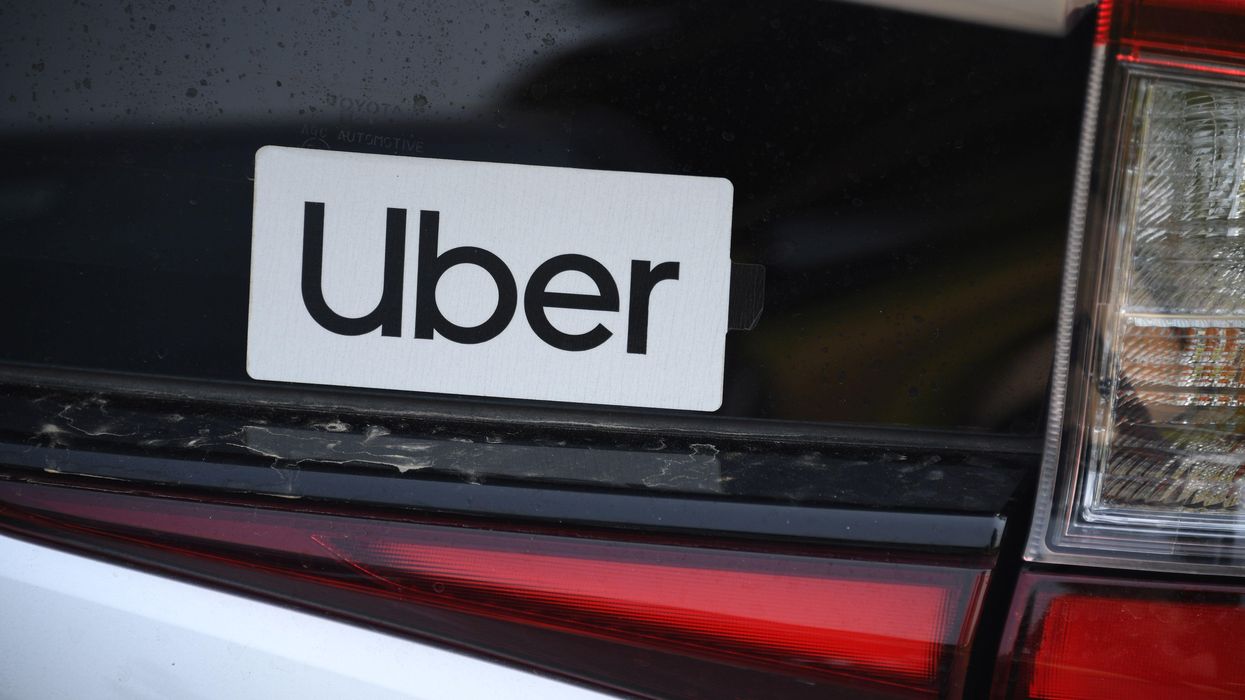Clements is the president of American Promise, a nonprofit advocate for amending the Constitution to allow more federal and state regulation of money in politics.
While we fight with each other, foreign corporations and governments are expanding their influence over American law.
One example of many: Uber and some other global companies recently spent $200 million pushing a ballot measure to rewrite California law in their favor. Now they are taking that big-money playbook to force favorable laws across the nation.
Foreign money influence? But isn’t Uber an American company? Not really. Look more closely.
A day after its win in California, the value of Uber stock went up 14%. With a market value of $75 billion, that win was worth $10.5 billion to Uber’s shareholders. And who are Uber’s shareholders? Foreign governments and foreign corporations are in the driver’s seat.
The largest shareholder by far is Softbank Group’s Vision fund, a $100 billion investment vehicle created by the Japanese conglomerate with funding from foreign governments.
The second largest Uber shareholder is the government of Saudi Arabia, through the sovereign investment fund that it plans to expand to $1 trillion by 2025. Next is Morgan Stanley, a multinational giant that calls itself “a true global citizen” while it celebrates the “broken down” regulatory barriers to global money flow.
Ownership means control: All of these big foreign shareholders are represented on Uber’s board of directors. If they can put $200 million into one campaign and come out with a $10.5 billion gain overnight, how high will they go? Where does it stop?
A century ago, the big idea of the ballot measure was to check the influence of the “great and powerful corporations.” The ballot measure idea sought to ensure “that this government shall be brought back to the real control of the people.” Twenty-six states adopted the reform.
Now, the “citizen initiative” has become the “foreign corporation initiative.” In 2021, global corporations, including some owned by foreign governments, spent $89 million on a state ballot measure that sought to stop an international energy corridor through Maine. A few years ago, global pharmaceutical companies spent nearly $60 million to stop an Ohio drug price reduction measure.
Meanwhile, the Federal Election Commission, meant to enforce what’s left of our broken-down anti-corruption rules, awoke from its slumbers recently to announce that it can do nothing about foreign money in state ballot measures.
Not only ballot measures, but every federal, state, and even local election is now at risk. In theory, federal law still prohibits direct campaign contributions by foreign governments or nationals in candidate elections. But the Supreme Court’s evisceration of anti-corruption laws in Citizens United and other cases leave us dangerously exposed.
Richard Clarke, a senior national security advisor in Republican and Democratic administrations, warns that “ direct foreign attacks on our electoral and democratic processes are a national security threat.” He warns that “American elections are most vulnerable to political spending directed by foreign powers [through] dark money groups that do not disclose their donors, and corporations and other business entities with substantial foreign ownership.”
The official policy of Uber, for example, is to spend money to influence candidate elections and ballot initiatives. Uber has numerous ways to do that, from super PACs and trade associations to the politicians’ favorite front groups, such as the Republican or Democratic associations for attorneys generals and governors.
President George Washington once warned that “a free people ought to be constantly awake against the insidious wiles of foreign influence.” This is not because America is afraid of ideas from abroad. Rather, it is because foreign states will seek to use money and corruption to buy influence. In free societies such as ours, where no idea is foreign, we have to watch the money.
After all, Washington’s one-time partner, Benedict Arnold, did not betray the American cause because he was persuaded of the superiority of the idea of monarchy over liberty. He betrayed America because the British government paid him 20,000 pounds.
It’s still about the money. When we police foreign influence, we guard the freedom and sovereignty of the American people. And whether it is Saudi oil interests, Chinese military intelligence operations, or Russian disinformation and division campaigns, we have to follow – and regulate – the money.
But unlike any time before in our history, our constitutional ability to do this has been compromised. The Supreme Court’s new ideology equating unlimited money from any kind of entity with “free speech,” immune to regulation if it doesn’t go directly to a candidate, threatens to leave us asleep to the scale and scope of global money influencing our affairs.
Americans are waking up, and hope is rising in the east. In Maine, citizens and legislators are uniting across political lines to fight for a two-pronged solution: 1) Ban foreign government money in state elections, including from foreign-influenced corporations, and 2) hold Congress responsible for advancing an anti-corruption amendment to the U.S. Constitution to repair the damage that the court has done to the safeguards for our voice and votes.
The Protect Maine Elections campaign seeks to get on the 2022 ballot. (Disclosure: I and American Promise support the effort). No doubt it will draw heavy firepower from those who have gotten used to purchasing our laws and politicians. But this stand may prove to be a model for every state to check the threat of foreign government money in elections and begin to secure the constitutional foundation for protection in the uncertain decades to come.




















Trump & Hegseth gave Mark Kelly a huge 2028 gift